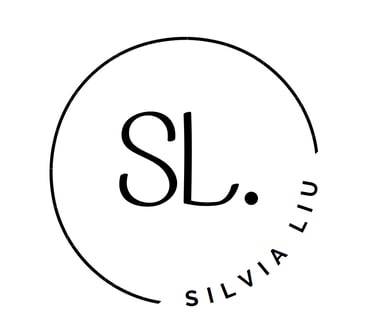Healing from Grief and Loss
When we don't fully grieve all our losses, we tend to be faced with a crippling amount of anxiety, anger, and confusion.
GRIEFRELATIONSHIPSANXIETY
Silvia Liu, Psy.D.
4/11/20232 min read
Often, we are faced with life's ups and downs that leaves us drained and lost. Sometimes, we are in such a rush to return to normalcy that we miss out on the important task of grieving our losses.
As meaning-making creatures, humans tend to feel immense sadness for a number of reasons. If you lose something or someone that is important to you, you will inevitably feel grief and sadness. This is an essential feeling that tells us what we valued and who we held close to our hearts.
But grief also happens when we experience a sense of loss, either from realizing that we will not be able to have what we wished to have (i.e., disappointment), or that we never had what we thought we had (i.e., disillusionment). We could lose things that are tangible (e.g., the teddy bear that you held as a comfort item for decades) or intangible (e.g., a role or an identity; an ability or skill).
When we don't fully grieve our losses, our sadness eats away at us.
Sometimes, sadness that has been ignored shows up as anger in our lives because we are unable to accept the painful reality of loss. We feel frustrated and keep seeking to change things instead of seeing it as it is.
For example, we fight fiercely with the people in our lives pushing them to just change their ways, but we never sit with ourselves long enough to feel at ease with the grief we feel from realizing that we may simply not be able to get what we dreamed of getting from our loved ones. Who would even want to feel "at ease" with our own grief?
Other times, the sadness that has been pushed aside becomes a great deal of anxiety and confusion because life has proven to be too unpredictable, cruel, and unfair. We spin in circles trying futilely to protect ourselves from the injury that has already been dealt.
For example, our past traumas become the fertile ground in which we worry incessantly about taking risks in life, such as making meaningful connections with others, applying for a challenging position, and trying something new, so much so that we shut down and succumb to our fear and inertia. As we keep doing this, our world becomes smaller and smaller, not by choice or preference, but because we cannot even imagine simply coming into full contact with the grief of having suffered these past traumas. We avoid the risk so we can avoid the fear of our own pain. We fear our fear and grief.
When we don't fully grieve our losses, our sadness eats away at us. And the beauty of this is: We do not have to face our grief and losses alone. Because when we grieve alone, that sense of isolation is an additional layer of loss to experience and it's super painful. We grieve together, as a people, as a community, in solidarity and companionship, and in care and love. We grieve our losses because life's full of living.
My office
Telehealth Only
Contacts
drliu@stepsps.com
+(626) 884-1770
Silvia Liu, Psychologist


Insurance Accepted
Medicare
Aetna
Anthem Blue Cross California
Cigna
United Healthcare
Oxford
Blue Shield of California
Blue Cross Blue Shield
Optum
Kaiser Permanente
Modern Health
